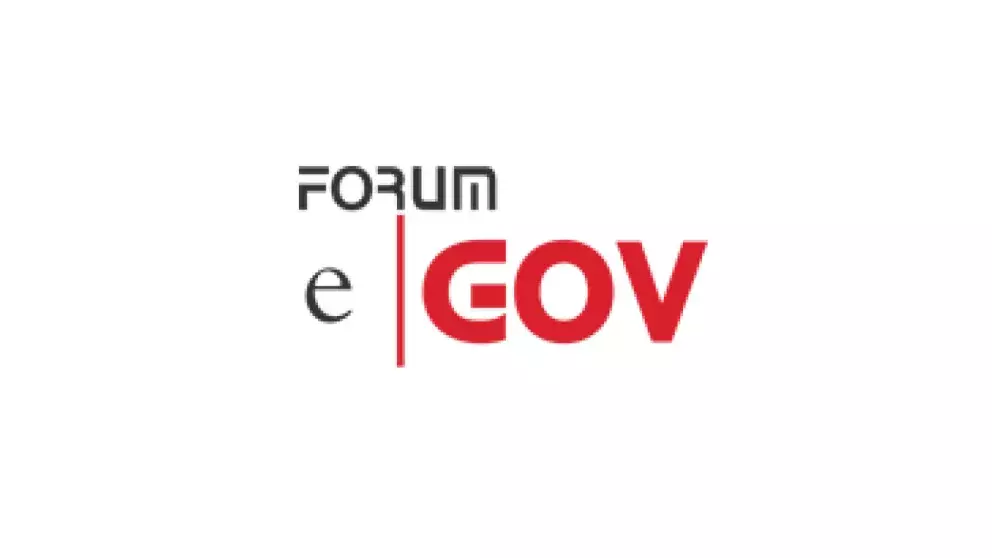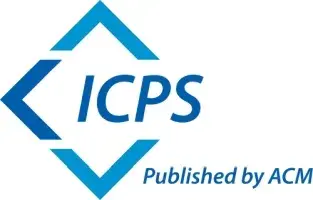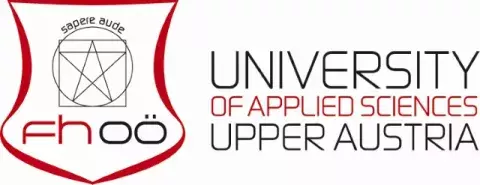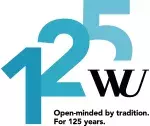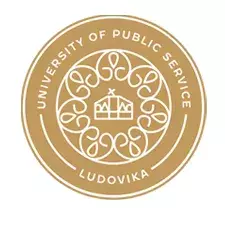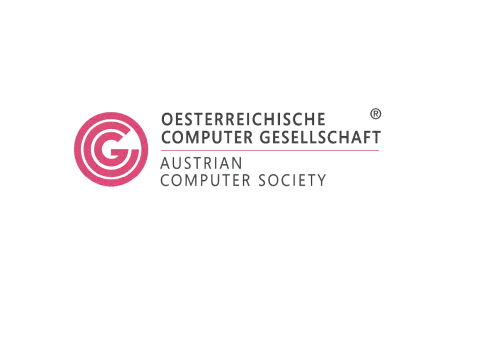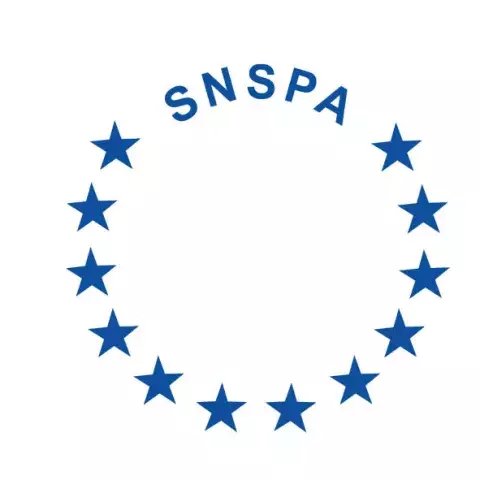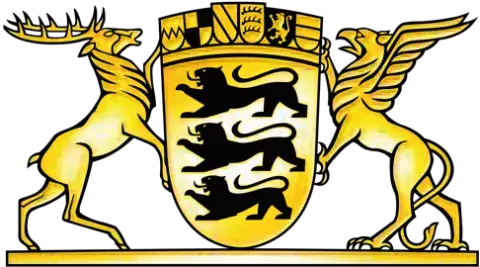September 12-13, Budapest, Hungary
Central and Eastern European e|Dem and e|Gov Days 2024 is dedicated to all aspects of ICT in the public sector. Each year a special theme is chosen to dominate the keynotes and panel discussions. This year's theme is IT applications in agriculture, an often forgotten but crucial part of today's agriculture.
Topic: eAgriculture
Submission Deadline: March 31, 2024
This year we decided that that it was time to address IT applications in agriculture, an oft-forgotten, yet crucial part in present-day farming. We would identify two main areas:
- The usage of eGov services in agriculture to ensure compliance with government (EU) grant schemes, sustainability goals and food security.
- The usage of IT in promoting a more resource-efficient and healthy agriculture, such as Smart Farming to, for instance, minimize the usage of pesticides or Precision Farming to precisely adapt farming methods to real-time needs. This also includes highly computerized farming concepts, such as urban farming.
The conference addresses public sector practitioners and policy makers, industry professionals and academia alike. The disciplines covered are primarily information sciences, law and administrative science, political science, sociology and economics. Theoretical and empirical contributions are equally welcome. We especially encourage submissions addressing the European Union in general, the Danube Region, the Balkans and Eastern Europe. Beyond the general theme, papers are solicited in all areas of applying ICT to the Public Sector. The conference will particularly focus on, but not limit itself to, the following topics:
- Electronic Administration services both back office and in communication with the citizen,
- Identity management for individuals,
- Privacy and data protection (including Cyber Security),
- eDemocracy on all levels,
- The role of the internet in revolutions and in transition processes,
- Transparency and anti-corruption,
- eTools to help establish a European public space,
- Open Data,
- Public transport and public organization of mobility
- Legal aspects of eGovernment and eDemocracy,
- Economic and social impact of eGovernment and eDemocracy,
- Enabling the Digital Single Market
Organisers
- Austrian Computer Society (OCG)
- Information Society Development Institute, Chișinău (ISDI)
- National University of Political Studies and Public Administration, Bucharest (SNSPA)
- National University of Public Service, Budapest (NKE)
- University of Applied Sciences Upper Austria, Linz (FHOÖ)
- University of Economics and Business, Vienna (WU)
Timeline and organisation
- Paper submission: March 31, 2024, please use the format provided on the conference web page
- Reviews out: May 31, 2024
- Rights transfer: June 15, 2024
- Final paper submission: July 31, 2024
- Conference: September 12-13, 2024
In order to ensure timely publication, absolutely no extensions will be granted.
Contact
Please submit your abstracts/papers to ceeegovdays@ocg.at
A template will be made available for the paper preparation and can be found on the website of the conference.
To get current updates, please follow us on X.
CEEeGov publishes original, peer-reviewed work that has not been published before. Submissions should follow a clear methodological framework, empirical work should be based on reproducible data and analysis. For our policy on plagiarism, ghost writing and duplicate publications, see the processes in this flowchart.
The conference language will be English only. Papers will be subjected to a double-blind review process and published at ACM ICPS.
Formatting Rules & Copyright Transfer
Please submit your paper in MS Word using the Word submission template from https://authors.acm.org/proceedings/production-information/preparing-your-article-with-microsoft-word
On submission please also provide us with the information in this MS Excel file; it will be needed to create your entry in the ACM rights system.
The proceedings will also be distributed as a paper copy at the conference.
Publication Ethics
We follow the COPE Code of Conduct for Journal Editors, wherever applicable to conference publications to ensure the hightest standards of publication ethics and avoidance of malpractice. For details of the Code of Conduct, see this flowchart.
Guidelines for Reviews
- Reviews are to ensure the pertinence and scientific quality of the proceedings volume and the conference presentations; they evaluate the importance, originality and clarity of the paper, the validity of the methods used and the paper’s relevance to the conference.
- Reviews are managed by one member of the organising committee (currently Prof. Müller-Török, HVF Ludwigsburg, Mueller-Toeroek at hs-ludwigsburg.de); the pool of reviewers are the members of the programme committee. Reviewers are selected according to the topics and fields within the scope of the conference and the general principle to spread the work load evenly among programme committee members. The committee covers the scope of the conference in its broadest sense and ensures availability of suitable reviewers for virtually any topic within scope.
- All reviews are double-blind, at least two reviews are collected per submission. A paper is accepted (possibly with rework), if both reviews are positive. If the two initial reviews disagree, a third – decisive – review from another programme committee member is requested.
- Reviewers are expected to indicate to the review management, if there are conflicts of interest or other factors that may impair the relevance of the review immediately (eg, they recognize author or work, they do not feel competent in the field, etc.); they are also requested to indicate cases, where duplicate submissions and plagiarism are suspected. Review management follows the relevant procedures here.
- Reviews are expected to be pertinent and substantiate the decision to accept/accept with rework/reject a submission. They should provide hints to authors how to improve the quality of the paper; libellous or offensive criticism is not acceptable.
- Reviewers are kindly requested to produce their reviews in a timely manner in line with the published schedule of the conference; reviewers who decline their reviews without substantial reason or simply do not deliver are discontinued as programme committee members.
- Should the author/s of a submission feel that the procedures and principles of this guideline have been violated, the author/s can appeal from the initial decision to the review appeals board (currently consisting of Prof. Gergely Deli, Ludovika University of Public Service, Budapest, Prof. András Nemeslaki, Budapest University of Technology and Economics, and Prof. Alexander Prosser, WU Vienna). This board will review the decision, is entitled to request additional reviews if necessary and make a final decision on the submission.
to be published
to be published
Ludovika Campus, University of Public Service
1083, Budapest
Ludovika tér 2
- 31 March 2024: Paper submission (max. 10 pages), double-blind full paper review
- 15 May 2024: Reviews out
- 15 June 2024: Rights Transfer
- 31 July 2024: Final paper submission
- 12 - 13 September 2024: Conference
- Franziska Cecon, University of Applied Sciences Upper Austria
- Tamás Kaiser, Ludovika University of Public Service, Budapest
- Robert Müller-Török,Hochschule für öffentliche Verwaltung und Finanzen Ludwigsburg
- András Nemeslaki, Budapest University of Technology and Economics
- Alexander Prosser, Austrian Computer Society/University of Economics and Business, Vienna
- Dona Scola, Information Society Development Institute, Chişinău
- Silvia Ručinská, Pavol Jozef Šafárik University, Košice
Awad Mohammed, American University of Ras al-Khaimah
Bagnato Domenica, University of Economics and Business Administration Vienna
Balogh Zsolt György, Corvinus University Budapest
Berényi László, Ludovika University of Public Service, Budapest
Bergmann Marie, Federal University of Applied Administrative Sciences
Bernhart Josef, European Academy Bozen
Cecon Franziska, University of Applied Sciences Upper Austria
Cellary Wojciech, WSB University Poznan
Cojocaru Igor, Information Society Development Institute, Chişinău
Deli Gergely, Ludovika University of Public Service, Budapest
Dietrich Antje, University of Public Administration Kehl
Dragomirescu Horatiu, Bucharest University of Economic Studies
Duma László, Corvinus University of Budapest
Dürrschmidt Jörg, University of Public Administration and Finance Ludwigsburg
Eixelsberger Wolfgang, Carinthia University of Applied Sciences
Fási Csaba, Ludovika University of Public Service, Budapest
Ferkelt Balázs, Budapest Business School
Gourova Elissaveta, Sofia University St. Kliment Ohridski
Gramlich Ludwig, TU Chemnitz
Hansen Hendrik, Federal University of Applied Administrative Sciences
Harsági Viktória, Andrássy University Budapest
Hemker Thomas, Federal University of Applied Administrative Sciences
Kaiser Tamás, Ludovika University of Public Service, Budapest
Kő Andrea, Corvinus University of Budapest
Krasznay Csaba, Ludovika University of Public Service, Budapest
Kudo Hiroko, Chuo University, Tokyo
Leitner Christine, Centre for Economics and Public Administration Ltd. (CEPA)
Leitner Maria, AIT Austrian Institute of Technology GmbH
Loch Alexander, University of Public Administration and Finance Ludwigsburg
Makó Csaba, University of Public Service
Miloš Matija, University of Rijeka
Müller-Török Robert, University of Public Administration and Finance Ludwigsburg
Nemeslaki András, Budapest University of Technology and Economics
Paulin Alois, University of Public Administration and Finance Ludwigsburg Pautsch Arne, University of Public Administration and Finance Ludwigsburg
Pichler Johannes, Universität Graz
Pinter Róbert, Corvinus University of Budapest
Polcak Radim, Masaryk University Brno
Prosser Alexander, University of Economics and Business Administration Vienna
Roggenkamp Dirk, Berlin School of Economics and Law
Rucinska Silvia, Pavol Jozef Šafárik University
Sasvári Péter, University of Miskolc, Ludovika University of Public Service, Budapest
Schenk Birgit, University of Public Administration and Finance Ludwigsburg
Schulze Anna, Federal University of Applied Administrative Sciences
Scola Dona, Information Society Development Institute
Sievering Oliver, University of Public Administration and Finance Ludwigsburg
Simic Diana, University of Zagreb
Szádeczky Tamás, Budapest University of Technology and Economics, Budapest
Traunmüller Roland, Johannes Kepler-University Linz
Urs Nicolae, Babes-Bolyai University, Cluj-Napoca
May be amended
Austrian Computer Society
Forum e|Gov
Wollzeile 1, 1010 Vienna
Austria
ocg.at
University of Applied Sciences Upper Austria (FHOÖ)
Austria
fh-ooe.at
Information Society Development Institute
5A Academiei Str., Chisinau, MD-2028
Republic of Moldova
idsi.md
Ludovika University of Public Service, Budapest (NKE)
Hungária krt. 9-11.
1083, Budapest
Hungary
en.uni-nke.hu
National University of Political Studies and Public Administration (SNSPA)
Bvd. Expozitiei, No. 30 A, District 1
Bucharest, MD-2028
Romania
snspa.ro
University of Exonomics and Business
Welthandelsplatz 1
1020 Vienna
Austria
wu.ac.at
CEEE|Gov Days 2023
Public Transport and New Forms of Mobility
- CEEEGov2023-Proceedings (ACM Digital Library)
CEEE|Gov Days 2022
Hate Speech and Fake News. Fate or Issue to Tackle?
- CEEEGov2022-Proceedings (ACM Digital Library)
CEEE|Gov Days 2021
CoV-19 as a Driver for eGovernment?
CEEE|Gov Days 2020
Cyber Security and eGovernment
This conference was cancelnd due to the COVID-19 situation.
- CEEEGov2020-Proceedngs (pdf)
CEEE|Gov Days 2019
Cyber Security and eGovernment
- CEEEGov2019-Proceedings (OCG Open Access Plattform - ocgitservice.com)
CEEE|Gov Days 2018
eDemocracy and eGovernment for and by Researchers, Politicians and Practitioners
CEEE|Gov Days 2017
Digital Divide in the Danube Region: Is it still significant in explaining ICT adoptions in eDemocracy and eGovernment?
CEEE|Gov Days 2016
Multi-Level (e)Governance: Is ICT a means to enhance transparency and democracy?
CEEE|Gov Days 2015
Independence Day: Time for a European Internet?
CEEE|Gov Days 2014 (10th conference)
eGovernment: Driver or Stumbling Block for European Integration?
Privacy Statement
This Website is hosted by the The Austrian Computer Society (henceforth: OCG). OCG is a non-profit association for the promotion of informatics and communication technology with due regard to their interaction with people and society. The association provides an interdisciplinary forum for current IT topics.
On this website we collect and process data of persons participating in the Central and Eastern European e|Dem and e|Gov Days; and of persons who enter into contact with the OCG regarding the conference. Find more information about data handling on ocg.at/en/ps
We are committed to ensuring data security. We process your data in strict compliance with the law – General Data Protection Regulation (EU) and Austrian Telecommunications Act (TKG 3). This data privacy policy informs you about the most important aspects of data processing.
Who is responsible for data processing?
Austrian Computer Society (OCG)
Wollzeile 1
1010 Vienna, Austria
E-Mail: info@ocg.at
Contact:
Wolfgang Resch
c/o Austrian Computer Society (OCG)
Wollzeile 1
1010 Vienna, Austria
E-Mail: datenschutz@ocg.at
For organizational reasons, we share data collected on the registration site of this website with the organizing partners in Hungay:
- National University of Public Service (henceforth: NKE)
- Budapest University of Technology and Economics (henceforth: BME)
Information on data protection concerning images (fotos and video)
Photos are taken by the organiser OCG, NKE and BME at the Central and Eastern European e|Dem and e|Gov Days.
Aim of the recording of the data (the photoshoot) is the advertising of the event to a wider audience, to the colleagues not personally present and to a professional audience, also to advertise the event on its Twitter page and by other available means of media.
Most of the photos are „mass photoshoots”, where individuals are not, or very hardly recognisable, on the other hand occasionally close-up photos may also be taken. Basis for handling the data is the consent based on GDPR Art 6. Clause (1), based on Hungarian Civil Code Art 2:48.
Those participants who do not wish close up photos to be taken of them, can indicate such wish at the beginning of the event, by the registration. They are asked to take their seats in the „no photo” zone. Should such a photo still be made at the event, such will either be deleted, or the person depersonalised, at latest during the afterworks.
Handling the data is based on consent and it is done until such content is withdrawn, nevertheless such paper based and other media appearences, that were created based on the consent given, can later not be deleted. Data is not forwarded to third countries.
Find the contacts for each organizer here:
NKE: https://www.uni-nke.hu/adatvedelem
BME: https://www.bme.hu/adatvedelem
You can withdraw consent at any time by way of addressing an e-mail to one of the contact persons, but it is not possible to modify the list of participants, so your data will be processed further under the legitimate interest of OCG, NKE and BME together with other financial documentation of the event.
In compliance with GDRP, you have the right to request access to and rectification or erasure of your personal data or restriction of processing the data or to object to processing as well as the right to data portability. Simply address OCG through an e-mail to datenschutz@ocg.at.
Kontakt
Secretariat ceee|Gov Days
Österreichische Computer Gesellschaft (OCG)
Wollzeile 1, 1010 Vienna
ceeegovdays@ocg.at
+43 1 512 02 35 - 0
